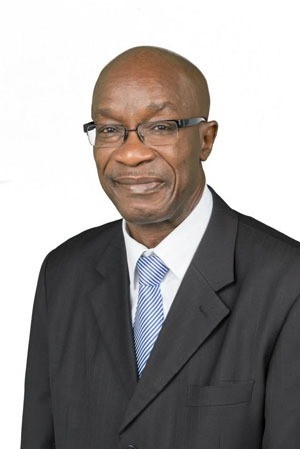 PHILIPSBURG:--- Member of Parliament George Pantophlet says that the United Nations General Assembly met some 65 years ago in several sessions. The discussions related to whether the Netherlands were permitted to cease providing information under Article 73 e of the charter of the United Nations. According to the Member of Parliament, what was also highly disputed during those meetings were the Kingdom Charter and specifically its effects on the then territories of Suriname and the Netherlands Antilles.
PHILIPSBURG:--- Member of Parliament George Pantophlet says that the United Nations General Assembly met some 65 years ago in several sessions. The discussions related to whether the Netherlands were permitted to cease providing information under Article 73 e of the charter of the United Nations. According to the Member of Parliament, what was also highly disputed during those meetings were the Kingdom Charter and specifically its effects on the then territories of Suriname and the Netherlands Antilles.
The countries, though having the same documents in hand still came up with different interpretations. While some countries such as Brazil and the United States to name a few saw the Kingdom Charter as a document that entails the mechanisms for full self-internal governance and was convinced then that the documentation submitted by the Netherlands Government (Dutch) made it quite clear that the two Caribbean countries enjoyed full autonomy, others saw it as too much influence of the Netherlands in the internal affairs of the countries.
The Member of Parliament continues by saying that some countries such as the Philippines questioned the need for the charter. The anti- Kingdom charter proponents identified articles that clearly infers the dominance of the Netherlands. Another representative from the country of Iraq questioned the functioning of article 44 of the Kingdom Charter as some of the clauses in more particular in paragraphs 1 (b) and (c) gave the Netherlands Government the power of veto on matters falling outside the scope of Kingdom affairs. We are often reminded by some persons that the people voted to remain within the constellation of the Kingdom of the Netherlands. But the remaining part of the Kingdom in the people’s understanding was on the premise of equality as is stated in the Kingdom Charter. The very fact that the Dutch government used the term Kingdom of the Netherlands and not Kingdom of the Netherlands Surinam and the Netherlands Antilles should have been seen as a warning sign by us. One of the concerns of the Venezuelan delegation was and he quotes “that the Assembly had to decide whether the Kingdom Charter conferred on the Netherlands Antilles and Surinam a full measure of self-government in which case and in which case only the obligations of the administering Power under chapter XI would have already lapsed end of quote.
Another country (India) dealt with the issue of the Queen. And he quotes; “Despite the use of the word “Kingdom” the Netherlands Antilles and Surinam were governed by the Queen of the Netherlands, not by the Queen of the Antilles and or Surinam. The difference was important. Where the head of one of the partners was, without any change of status, the head of the other, the position was not one of the partnership but dependence end of quote.
In his understanding, the Netherlands held no discussions as to whether the then territories of the Netherlands Antilles and Surinam wanted to have a monarch as a head of state. It was a condition si qua non. India also made reference to article 51 of the Kingdom Charter saying that in any really self-governing territory the right to dissolve this responsibility should be vested in the territorial parliament. It also concluded that the status conferred on Surinam and the Netherlands Antilles did not give them a full measure of self-government or make them independent sovereign states. Several countries also congratulated the Netherlands (Ecuador) and he quotes “ The government of the Netherlands was also to be congratulated on its respect for its moral legal obligations under the Charter of the United Nations and on its loyalty to the Organization in submitting to it the case for cessation of the transmission of information under Article 73 of the Charter end of quote. The use of the term country for me is inaccurate and I concur with others and in this case, a delegate from Ecuador who said and I quote; “The use of the vague term “countries” in case of Surinam and the Netherlands Antilles was undoubtedly deliberate. They did not possess that power of self-determination, which was essential for a sovereign state” end of quote. He wants to highlight other cardinal points that were brought up during these meetings which took several days. The USSR (Russia) mentions and he quotes.
“Although the countries internal affairs were to be conducted in accordance with the country constitutions the supreme power was not in the hands of the country parliaments but of the Governors appointed by the King” end of quote. Some of the statements made highlighted the reality of a Democratic Deficit. When he wrote this article, there was a meeting to be held with the First Chamber (Eerste Kamer) to discuss the 10 years old “Dispute Regulation” but that was canceled at the last minute. And also for St. Maarten very critical meeting on the liquidity support suffered the same fate. Equal in word but not in reality.











